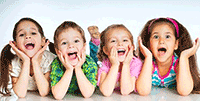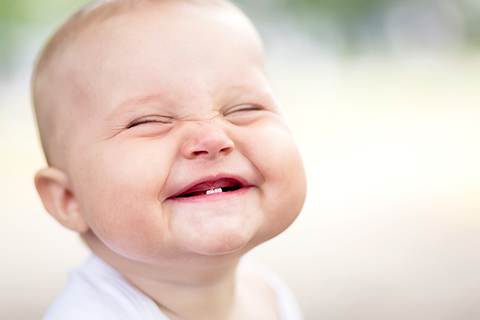children’s dentist Redondo Beach
FAQ
When should I start taking my child to the kids dentist? 
You should take your child to see a dentist by the time they celebrate their first birthday. The dentist will evaluate your child’s oral and dental health and diagnose any problems, which may exist. Do not wait until a problem occurs. Preventive dental visits from an early age lay the foundation for a lifetime of good oral and dental health. First visits are mostly about getting kids used to the dentist’s chair and educating parents about how to care for their children’s teeth.
How often does my child need to see the kids dentist?
A check-up every six months is recommended in order to prevent cavities and other dental problems. However, your children’s dentist can tell you when and how often your child should visit based on their personal oral health.
When do the first teeth start to erupt?
At about 6 months, the two lower front teeth (central incisors) will erupt, followed shortly by the two upper central incisors. The remainder of the baby teeth appear during the next 18 to 24 months but not necessarily in an orderly sequence from front to back. At 2 to 3 years, all of these 20 primary teeth should be present. The first adult teeth can erupt at any age, so don’t be alarmed if your child’s teeth haven’t become wiggly when all their friends have. However if your child hasn’t lost their first primary tooth by the age of
When should parents start cleaning their child’s teeth?
Parents should be brushing their child’s teeth at least once daily with a soft-bristled kids toothbrush specially designed for toddlers’ small mouths and delicate gums. Good oral care starts before teeth appear. After feeding, parents should wipe baby’s gums with a soft washcloth or a baby toothbrush using water only (no toothpaste).
What should I use to clean my baby’s teeth?
A toothbrush will remove plaque and bacteria that can lead to decay. Use fluoridated tooth paste (<450ppm) for children under six years of age. Place only a smear of toothpaste on the brush and keep the tube safely out of reach. After brushing, don’t rinse. Instead just ask your child to spit out. That way they are less likely to swallow any toothpaste and it keeps a protective layer of fluoride on their teeth.
When can I let my child start brushing their own teeth?
As soon as your child is willing and able, it’s a good idea to let your child try to brush their own teeth, even though they probably won’t do a good job until they are about 7 years old or so. In the meantime it can be a fun and engaging idea to brush your teeth while your child brushes their own teeth. Then you can “check” each other’s teeth to see if they are clean.
Are certain foods more likely to cause tooth decay?
Yes. Sweets (including chocolates, sugary food, dried fruit, juice, and foods such as peanut butter and jelly) and starches (such as breads, crackers, pasta) can contribute to cavities. Try to serve these foods at mealtime rather than as snacks so they’re more likely to get dislodged and won’t sit on the teeth too long. Serving them with water is also helpful. Make sure your child has a balanced diet, including one serving each of fruits and vegetables, milk and dairy products, and meat, fish and eggs You can also ask your paediatric dentist to help you select foods that protect your children’s teeth.
Are baby teeth really that important to my child?
Primary, or “baby,” teeth are important for many reasons. Not only do they help children speak clearly and chew naturally, they also aid in forming a path that permanent teeth can follow when they are ready to erupt.
How safe are dental X-rays?
With contemporary safeguards, such as lead aprons and high-speed film, the amount of radiation received in a dental X-ray examination is extremely small. Even though there is very little risk, pediatric dentists are particularly careful to minimize the exposure of radiation to children. In fact, dental X-rays represent a far smaller risk than an undetected and untreated dental problem.
Tips for positive dental visit
- √ Schedule the child’s first dental visit between the arrival of the first tooth and their first birthday
- √ If possible, schedule a morning appointment when children tend to rest and cooperative
- √ Stay positive! The dentist will help to keep your child’s teeth healthy; keep to yourself any anxiety that you might feel about dental visits.
- √ Never bribe your child to go to dentist or use the visits as a punishment or threat
- √ Finally, try to make the child’s dental visit an enjoyable outing. Teaching your child good oral hygiene habits early can lead to a lifetime of good dental health
How to Brush your child’s teeth
You should gently wipe your baby’s gums daily with a wet cloth. When their teeth do appear, you can brush them with specially designed baby-friendly brushes, which have small heads, rounded bristles, and will be kind on teeth and gums. Use plain water once a day, not toothpaste.
For children between eighteen months and two years of age you can begin to use a pea-sized amount of toothpaste containing low amounts of fluoride, and make sure they learn to spit it out after brushing.
For children between two and eight years, you can use smears of regular toothpaste or a milk teeth toothpaste, if they still have trouble spitting out the excess. Supervise while they brush their own teeth first. Up to the age of six, children do not usually have the dexterity required to brush their own teeth well, so help them with the task once they have had a chance to practice on their own. They should be brushing twice a day for at least two minutes each time, usually after morning/evening meals.
Don’t forget to replace your child’s toothbrush every three to four months, or when the bristles begin fraying, and do not share toothbrushes between children or yourself.
Preventing Dental Decay
Fluoride is important for developing strong teeth, however it is recommended that you do not use toothpaste containing fluoride for children younger than eighteen months. Overexposure to fluoride can damage developing teeth. Store all toothpaste out of reach of children.
Flossing is encouraged from the age of two and a half years. By laying your child’s head in your lap, similar to being in a dentist chair, you can have a really good look at their teeth while you floss them. As they get older, it is good for them to get into the habit of flossing, so allow them to floss their own teeth around the age of six. Make flossing and brushing as fun as possible to encourage your child to do it!
A very important way to help prevent tooth decay in young children includes limiting consumption of sugary and acidic drinks, snacks or foods. Instead, encourage ‘teeth-friendly’ foods such as cheese, nuts, fruits and vegetables, and teach your child not to share drink bottles or cutlery as this can transfer harmful bacteria.
Your Child’s First Dental Visit
Take your child to the children’s dentist for their first dental check-up before they are two years old, and then at least once a year every year after that. If your child damages their teeth in any way, contact your children’s dentist immediately. Your children dentist or therapist will be the best source of advice regarding your child’s oral health care. They may advise more frequent visits or other preventative measures if they notice that your child is at higher risk of developing tooth decay. The good news is that early diagnosis of tooth decay means that treatment can be very conservative and least traumatic for your child.
Each time you have an appointment with our hygienist, your teeth are professionally scaled and polished, and remineralising agent is applied. We screen your mouth for gum disease, malignancies and tooth decay. Preventing problems is vital to good health, so our hygiene team will discuss with you how to best look after your teeth and gums at home. A dental therapist is a vital part of our team, offering a wonderful service treating dental concerns in children. A dental therapist is a great alternative to seeing a dentist, especially for young children. Our therapist has a great way of making children’s visits fun and enjoyable.
If your baby doesn’t have any teeth yet, you can wipe her gums with a clean warm wet cloth after every feed. Once she gets her first teeth, make sure you clean them after feeds with a warm wet cloth and avoid letting your baby fall asleep with a bottle. Do not allow your baby to drink anything else but milk or water from a bottle. Your toddler can have their teeth brushed the same way as the rest of the family. Until they are three years old they may not be able to spit, so avoid putting too much toothpaste on the brush and use only a smear rather than a blob of paste to brush their teeth. You may choose to use a milk teeth toothpaste with less fluoride until the first permanent teeth start erupting, but using regular toothpaste is also fine, as long as you use it in small quantities.
Dental Insurance Carriers

Telephone No.(310) 376-4537

